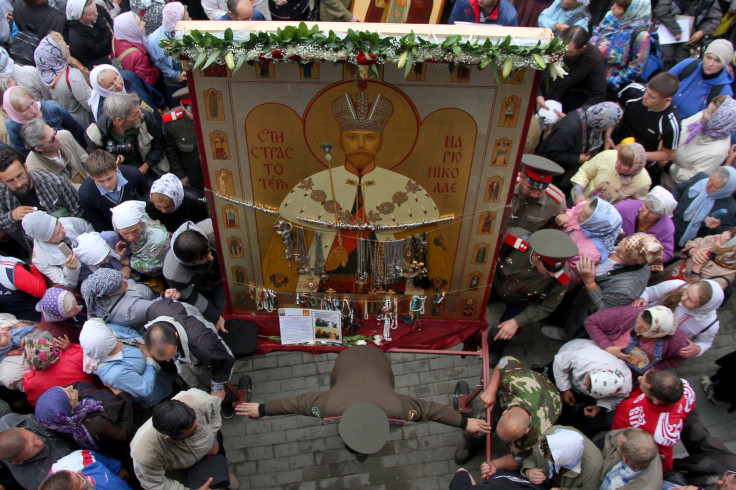Russian Orthodox Church Says Last Czar's Execution Was Jewish 'Ritual Killing'

Authorities announced that they would investigate an anti-Semitic theory that the death of the last czar of Russia, Czar Nicholas II in 1918 was a ritual killing after comments by a bishop close to Russia President Vladimir Putin.
Speaking after Monday's meeting of the church panel investigating the killing of the czar and his family, Bishop Tikhon Shevkunov, the Orthodox bishop heading the panel, said that “a large share of the church commission members have no doubts that the murder was a ritual," RT reported.
Nicholas II who was the last emperor of Russia renounced the throne in 1917 and was then placed under house arrest. He was shot together with his wife and five children on July 17, 1918, in the cellar of a merchant’s house in the city of Yekaterinburg.
When a probe was conducted in 1919-1922 by Nikolay Sokolov, an investigator from the White Army (anti-Communist forces that fought the Bolsheviks during the Russian Civil War), he arrived at a conclusion that all the bodies had been incinerated.
According to Shevkunov, who is heading a Russian Orthodox Church commission investigating the execution of the Romanov family, the murder was ritualistic in nature and held special significance for Bolshevik commander Yakov Yurovsky and his men.
A member of the Russia’s Investigative Committee said it would also conduct its own investigation into the theory. Colonel Marina Molodtsova, a senior investigator at the committee told the conference on Monday that 30 forensic tests have been commissioned after the probe into the murder resumed in 2015, Russian news agency TASS reported.
"After the criminal investigation was resumed, a total of 34 forensic tests have been commissioned in order to identify the remains," she was quoted as saying.
"The remains found in two gravesites in the Poroshenko ravine are being carefully examined. Experts are expected to clarify the reasons for their death, their gender and relations between them, as well as their injuries," the colonel further added.
In addition, Molodtsova said, a psychological and historical test would be conducted to find out if it could have been a ritual killing. “Since the investigation was resumed, more than 20 witnesses have been questioned, and the places where the remains were found have been examined,” she stated.
Meanwhile, Jewish groups across the country expressed their shock and anger at Shevkunov’s comments. Chief spokesman of the Federation of Jewish Communities of Russia, Rabbi Boruch Gorin was quoted as saying Tuesday by Russian news agency, Interfax [In Russian]: “We, as a Jewish community are shocked not only because of the absurdity of such assumptions. The myths about the existence of ritual killings relate to various cults and religions but in Russia … this has become a typical anti-Semitic myth, used by anti-Semitic propaganda for several decades."
“In our view, the absurdity of this theory is evident, because it’s obvious that the murder was committed by complete atheists – people who had rejected any faith in any powers apart from what can be done with their own hands,” he further stated.
According to reports, Shevkunov added to his statement and said on Tuesday: “Bolsheviks and their allies engaged in the most unexpected and diverse ritual symbolism” and that “quite a few people involved in the execution — in Moscow or Yekaterinburg — saw the killing of the deposed Russian emperor as a special ritual of revenge.” He also said that Yurovsky, the organizer of the executive who was Jewish, later boasted about his “sacral historic mission.”
© Copyright IBTimes 2024. All rights reserved.











